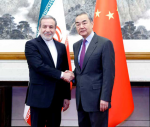You are here
Turning a blessing into a curse
Sep 14,2017 - Last updated at Sep 14,2017
Until the 1990s, when most media in the Arab world were almost exclusively governmental or official, we Arabs yearned for private and “free” media. Today, there is a growing feeling that what we got was not what we expected.
For decades, government or public media were perceived as essential tools for the dissemination and hegemony of state or governmental discourse.
To a great extent, this was true, as the primary concern for official media outlets was to transmit the state’s or government’s policies and edicts, paint rosy pictures about their impact, and justify mishaps and flaws whenever they happened.
Public opinion was largely ignored. And as there were no social or electronic media outlets at the time, people had little or no venues to express themselves.
When private media, both formal and informal, emerged and then started to expand, there was euphoria at the start. The state or government monopoly on media outlets came to an end, and we thought we would be entering an era of free expression, multiplicity of intelligent opinions on matters, and a closer approximation than ever of “objectivity” and “truth”.
With the emergence and spread of social media, we became even more elated, as each and every individual in society — like at no time before in human history — had at his or her disposal one or two outlets through which to voice his/her opinions on matters: Facebook, Twitter, individual websites, blogs, etc.
This all was media heaven, as it were.
Slowly and sadly, however, we came to the realisation that our expectations were somewhat — perhaps greatly — naïve and unrealistic. Actually, we started smelling something fishy from the start.
Today, many of us are immensely disappointed with the role and impact of these new types of media venues, both institutional and individual.
For one thing, we discovered that many of the major outlets — newspapers, satellite stations, TV channels and electronic websites were not “private” at all. Many are, in fact, owned and funded either by regimes and governments or by opposition political parties, and what they transmit is not “objective” news and “truthful” reporting, but — as in the case of state or government media — state, governmental or political party policies and edicts.
Worse, many turned out to be tools for furthering subversive and interventionist policies and agendas, not only in their own countries, but in other countries as well.
The outcome was not a better understanding of our world and better relations among the various stakeholders involved, but escalation of suspicion and tensions, as well as manipulation of differences and promotion of factionalism, fragmentation and hostility.
For another, those media outlets that were not owned by states and governments were owned and run either by opportunist individuals who are after personal gain or by pirates, mercenaries or even thugs, who are after settling scores with their perceived opponents and “enemies”.
Their purpose is not dissemination of information, but character assassination.
The first casualties, as a result, were “objectivity” and “truth”. The other casualty was the ordinary Arab citizen who has no venue that speaks on his or her behalf.
Claims by these outlets about representing the “voiceless”, the “silent majority” and “opinion and counter opinion” are hollow, fallacious slogans.
We have become almost equally disappointed by social media. By and large, these are not “tools of communication”, as we refer to them in Arabic, but tools for disseminating silly information, vulgar preaching, bad writing and bad expression, gossip and rumour; and a platform of narcissism, negative thinking, cynicism, libel and venom.
Of course, not all media or social media are like this; there are always exceptions, and there are always positive and even heroic dimensions to the media story in our part of the world.
Overall, however, we have employed the new media outlets that became so abundantly available to us not as tools of sober communication, dialogue, education and mutual understanding, but as tools of subversion and destruction.
In other words, we have turned a blessing into a curse. And we have no one to blame but ourselves.













